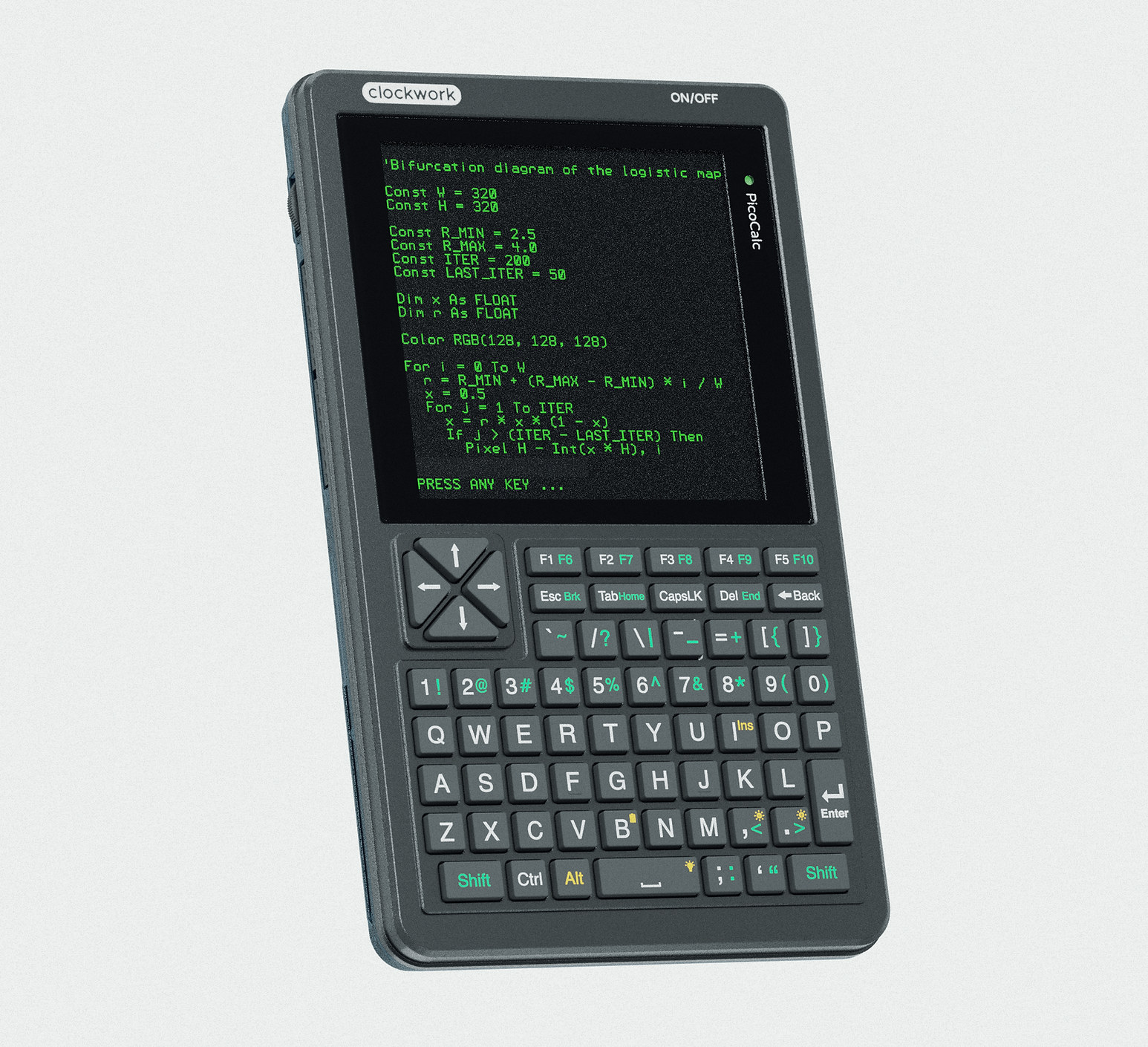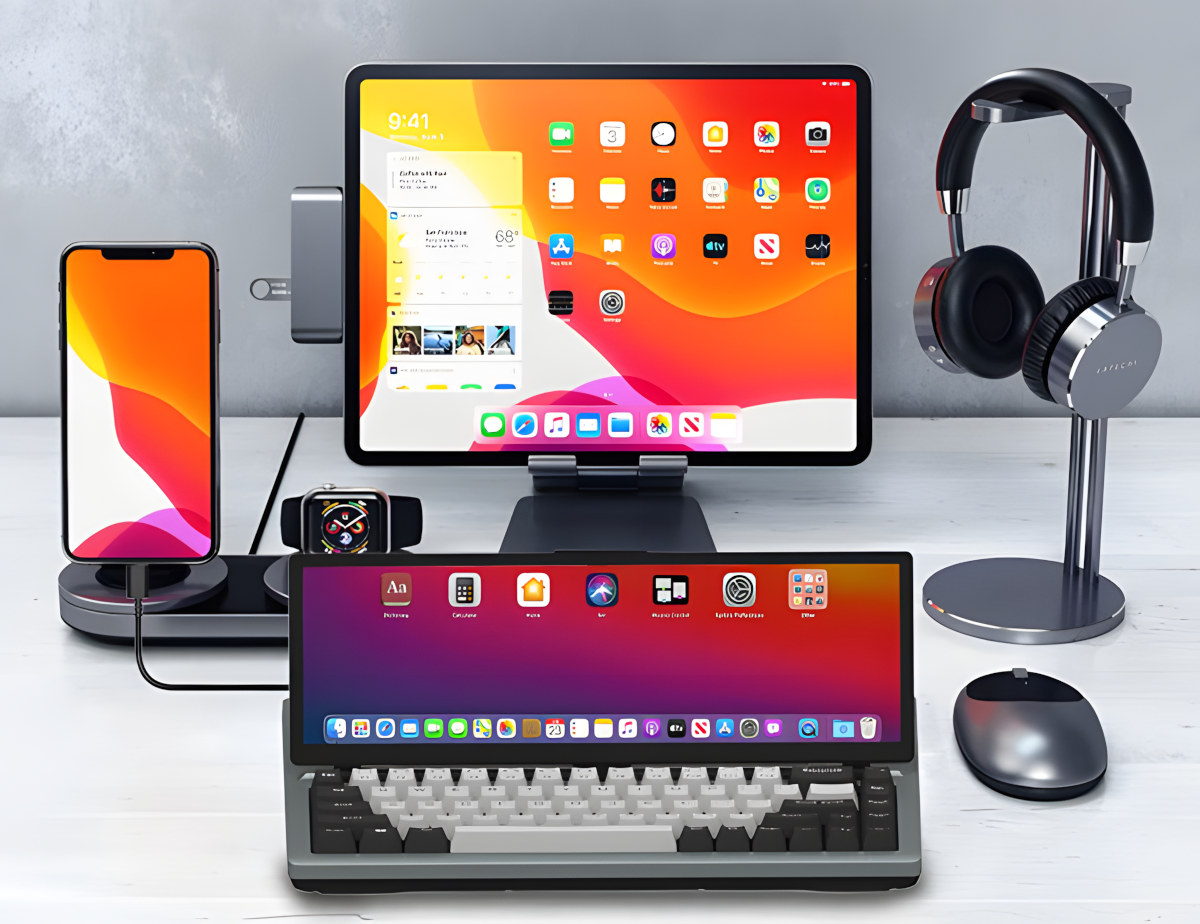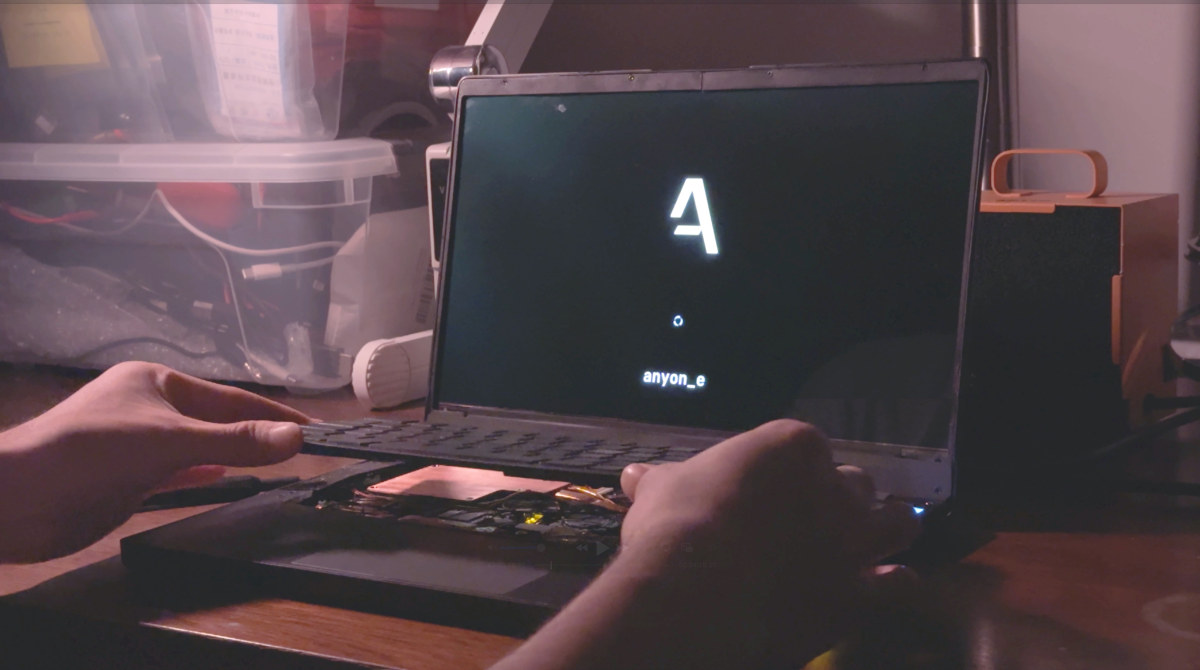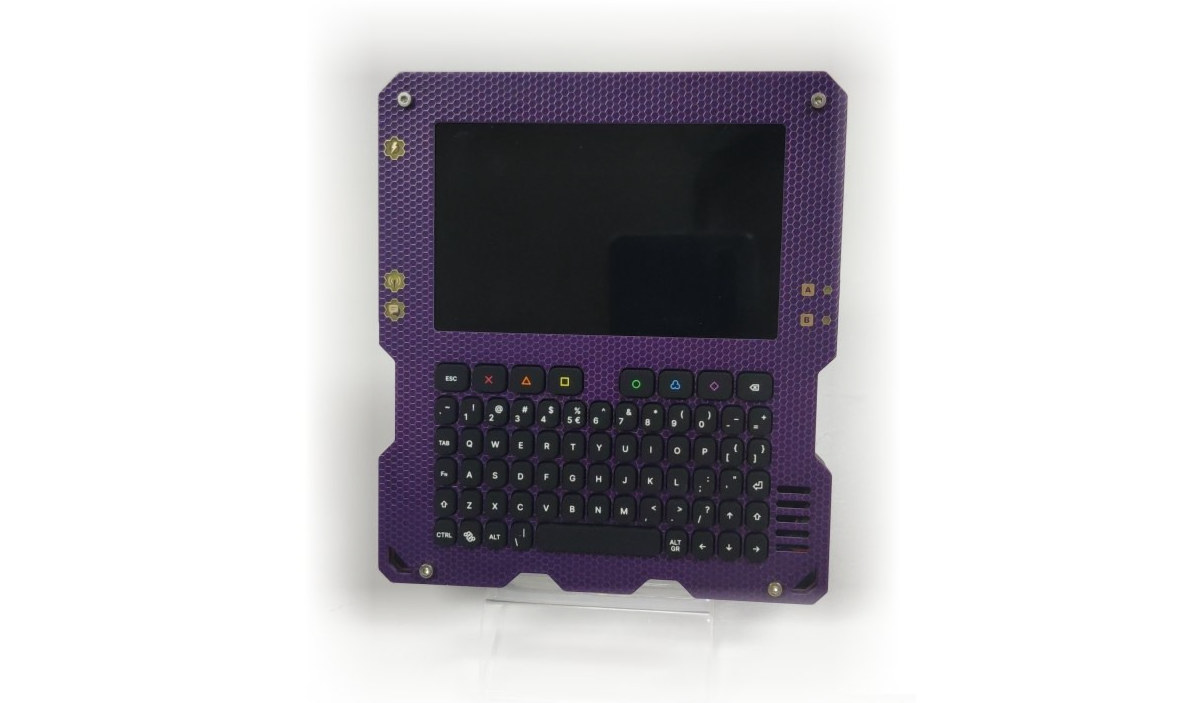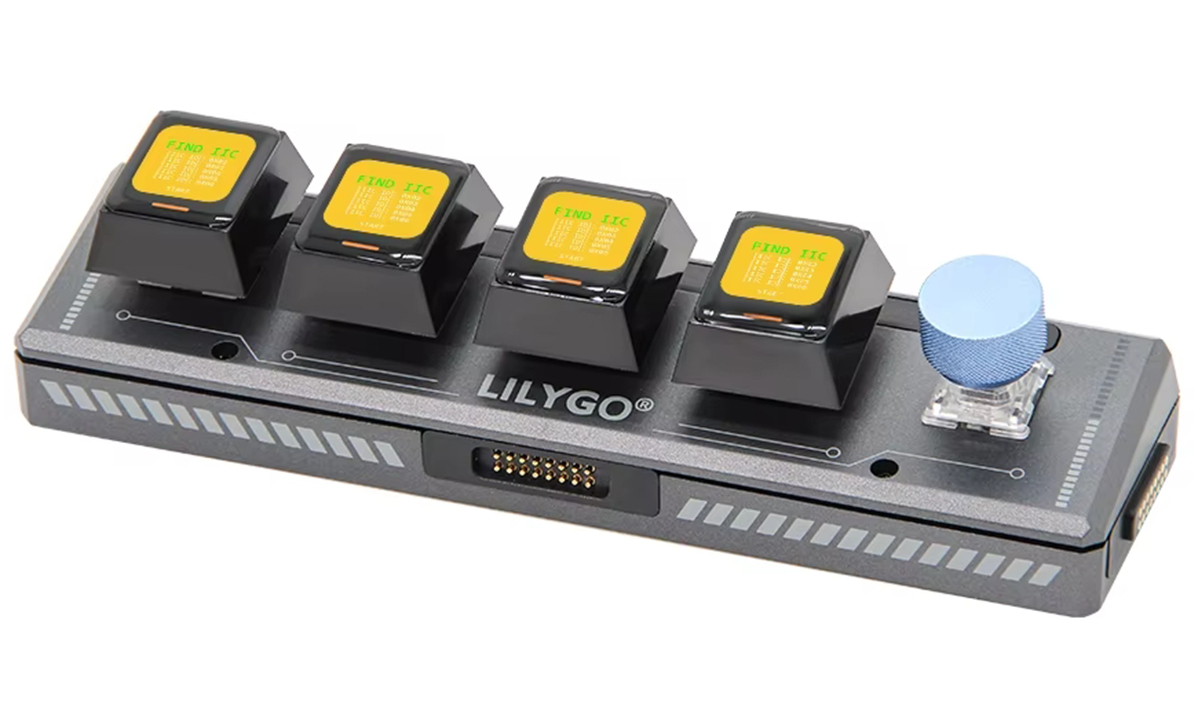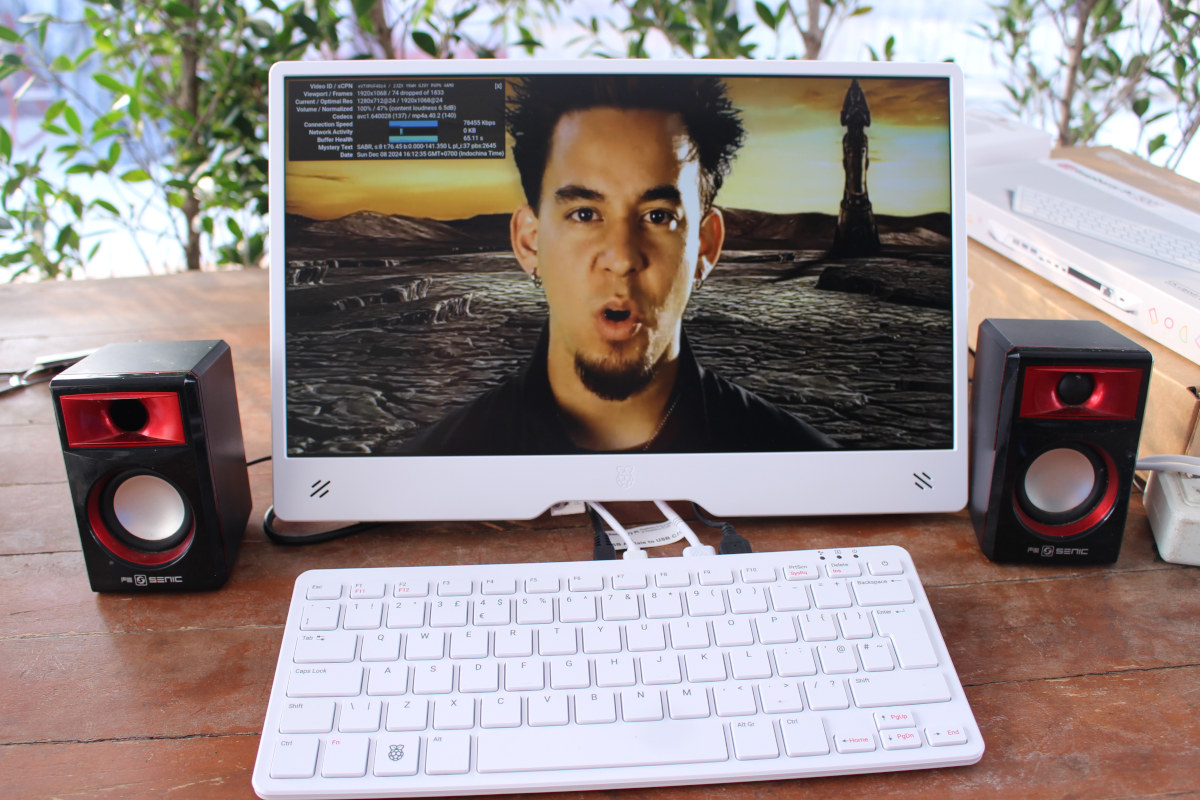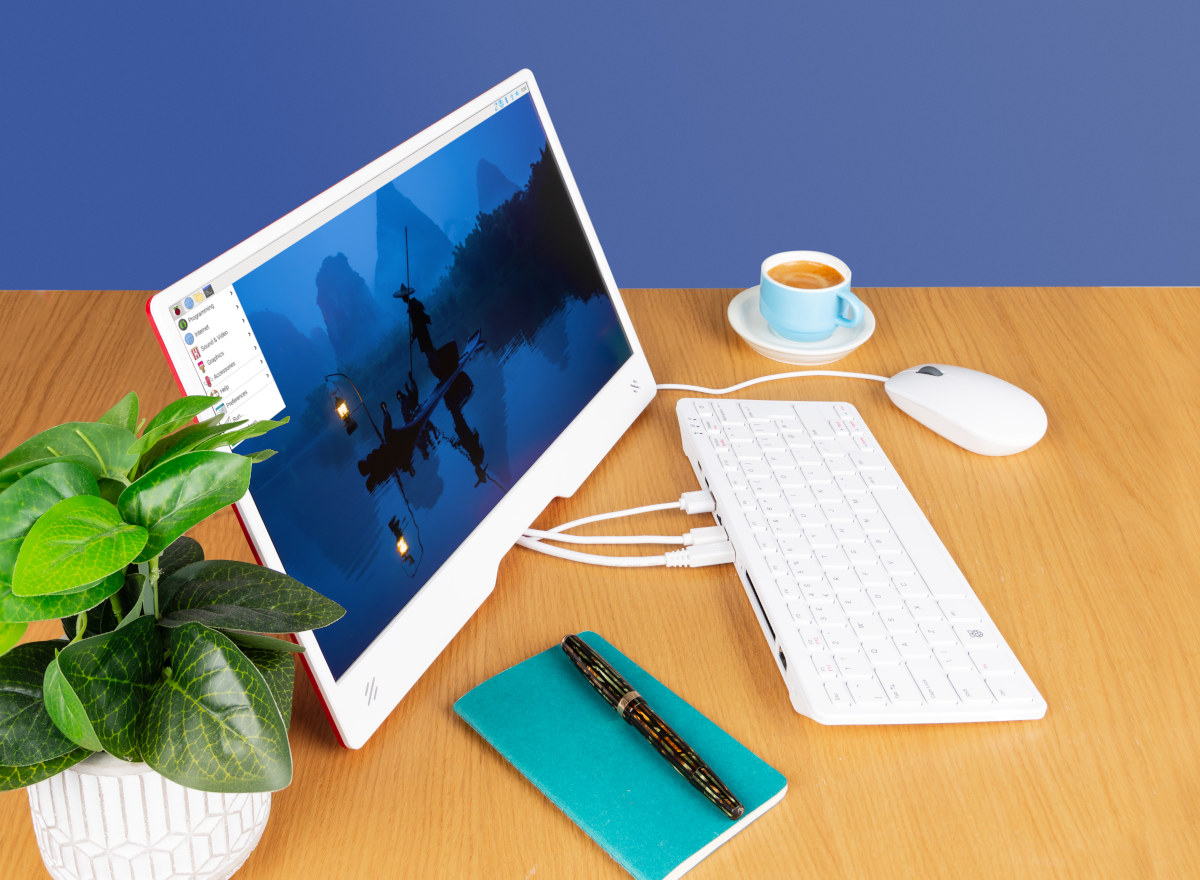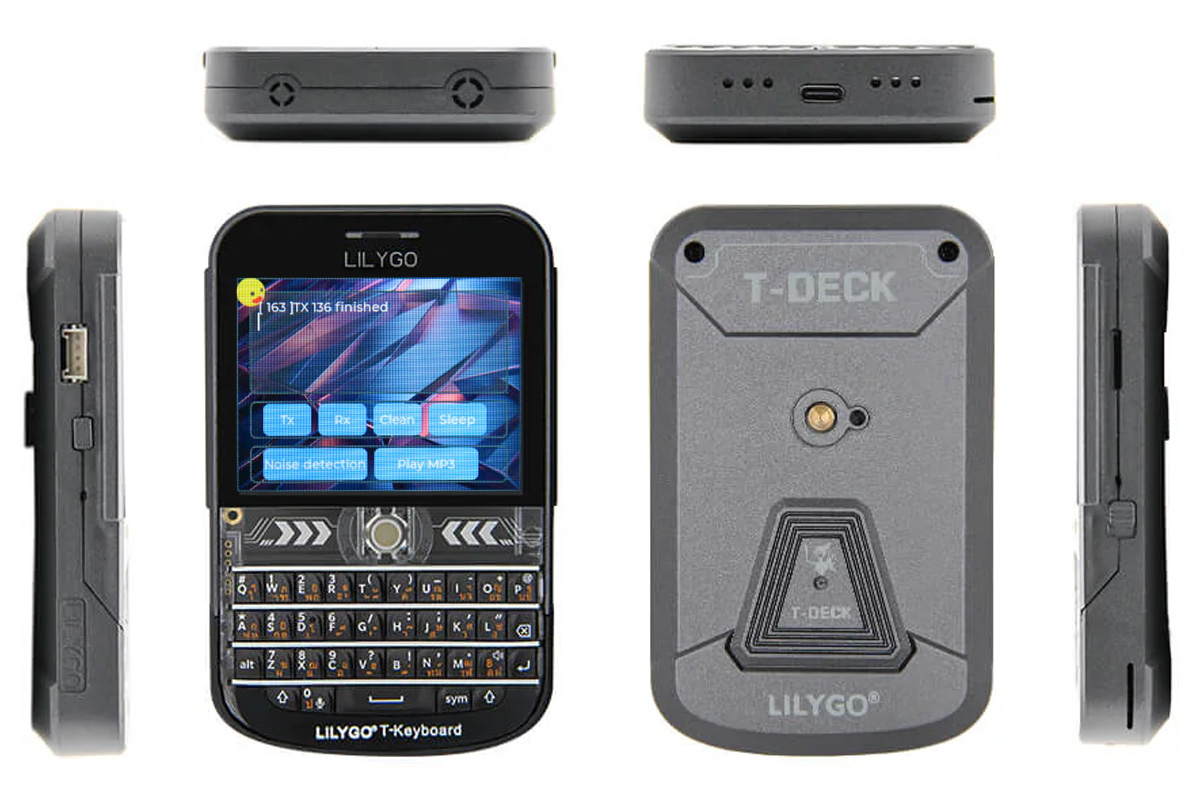ClockworkPi has made several Linux handheld terminals over the years such as the GameShell or DevTerm, but the PicoCalc Kit is quite different since it relies on the Raspberry Pi Pico board plus an STM32 microcontroller to handle its built-in keyboard. The PicoCalc Kit is based on the ClockworkPi v2.0 mainboard that takes an RP2040-based Pi Pico H board, connects to a 4-inch IPS display with 320×320 resolution and stereo speakers, integrates a backlit QWERTY keyboard, and ships with a 32GB SD card with an optimized BASIC firmware. PicoCalc Kit specifications: ClockworkPi v2.0 mainboard Compatible boards – Headers for Raspberry Pi Pico H/WH, and Raspberry Pi Pico 2 / 2W MCU – STM32 for keyboard and backlight programmable with the Arduino IDE or STM32 official development tools Storage – SD card slot Display – Screen connector (SPI) Audio 2x speaker connectors 3.5mm audio jack 67-key QWERTY keyboard (I2C) Expansion Connector […]
Bapaco is a mechanical keyboard PC with an ultra-wide 12.3-inch touchscreen display (Crowdfunding)
Made by Shenzhen SIDIQIAO Technology, the Bapaco is a mechanical keyboard PC powered by an Intel Core i5-1235U 10-core Alder Lake SoC and equipped with a 12.3-inch ultra-wide touchscreen display with 1920×720 resolution. The keyboard PC is offered as a barebone model without memory or storage but supports up to 32GB RAM, an M.2 2280 NVMe SSD, and/or an M.2 2242 SATA 3.0 SSD. It also features an HDMI output to connect an extra display, WiFi 6 connectivity, a few USB ports, and a 3.5mm audio jack and stereo speakers. Bapaco specifications: SoC – Intel Core i5-1235U CPU – 10-core/12-thread hybrid Alder Lake U-Series processor with 2x Performance cores @ 1.3/4.4GHz, 8x Efficient cores @ 0.9/3.3GHz Cache – 12 MB Intel Smart Cache GPU – 80EU Iris Xe Graphics @ 1.2 GHz BPB: 15W System Memory – Up to 32GB DDR4 3200MT/s SO-DIMM single-channel memory Storage M.2 2280 NVMe PCIe […]
anyon_e DIY laptop features Rockchip RK3588 SoC, 13.3-inch 4K AMOLED display, aluminum chassis
We’ve already seen several Rockchip RK3588 laptops with the Cool Pi laptop and GenBook RK3588, as well as the open-source hardware MNT Reform Next. anyon_e is another open-source DIY laptop based on Rockchip RK3588 octa-core Cortex-A76/A55 SoC but with higher-end specifications compared to competitors. The anyon_e features a 13.3-inch 4K AMOLED display, a wireless QWERTY mechanical keyboard, a custom aluminum chassis that keeps the thickness of the laptop to just 18mm, and a battery good for about 7 hours. It’s based on the FriendlyELEC CM3588 core board found in the CM3588 NAS Kit. anyon_e laptop (preliminary) specifications: SoM – FriendlyELEC CM3588 SoC – Rockchip RK3588 CPU – 4x CortexA76 cores @ up to 2.4 GHz, 4x CortexA55 core @ 1.8 GHz GPU – Arm Mali-G610 MP4 GPU Video decoder – 8Kp60 H.265, VP9, AVS2, 8Kp30 H.264 AVC/MVC, 4Kp60 AV1, 1080p60 MPEG-2/-1, VC-1, VP8 Video encoder – 8Kp30 H.265/H.264 video encoder […]
Tanmatsu handheld terminal features ESP32-P4 RISC-V MCU, QWERTY keyboard, WiFi, Bluetooth, 802.15.4, and LoRa connectivity
Tanmatsu is a handheld terminal device for hackers, makers, and tech enthusiasts based on the 400 MHz ESP32-P4 RISC-V microcontroller, including a QWERTY keyboard, and supporting various connectivity options with WiFi, Bluetooth LE, 802.15.4, and even LoRa in the 433 MHz or 868/915MHz bands. The handheld computer also features a 3.97-inch MIPI DSI display, a built-in speaker and a 3.5mm audio jack, and various expansion connectors such as a Qwiic connector for I2C/I3C modules, and PMOD and SAO expansion connectors. Tanmatsu specifications: Microcontrollers Espressif ESP32-P4 dual-core RISC-V microcontroller @ 400MHz with 32MB of built-in PSRAM WCH CH32V203C8T6 32-bit RISC-V microprocessor @ up to 144 MHz with 20KB SRAM, 64KB flash used for keyboard matrix and power management Storage 16MB flash for firmware MicroSD card slot supporting SD cards at 3.3v and 1.8v voltage levels (SDIO 3) Display – 3.97-inch MIPI DSI display with 800 x 480 resolution, 65,536 colors Audio […]
T-Keyboard-S3 Pro 4-Key USB mechanical keyboard adds rotary encoder, support for daisy-chaining up to six keyboards
Last year, we featured the T-Keyboard-S3, a USB mechanical keyboard with ESP32-S3, and four mechanical keys each fitted with a 0.85-inch color display. The upgraded T-Keyboard-S3-Pro adds a rotary encoder and four magnetic interfaces on each side controlked by an STM32G030 MCU to daisy-chain the host keyboard with up to 5 slave keyboards in a 3×2 grid. Previously, we featured the ANAVI Macro Pad 12, Macro Pad 10, and Macro Pad 2 programmable keyboards. Feel free to explore those as well. LILYGO T-Keyboard-S3 Pro specifications: Wireless module – ESP32-S3-WROOM-1 used in the host model only MCU – ESP32-S3R8 dual-core LX7 microprocessor @ up to 240 MHz with Vector extension for machine learning Memory – 8MB PSRAM Storage – 16MB SPI flash Connectivity – WiFi 4 and Bluetooth 5 with LE/Mesh PCB antenna Secondary MCU – STMicro STM32G030F6P6 for I2C magnetic connectors CPU – Arm 32-bit Cortex-M0+ CPU, frequency up to […]
Raspberry Pi 500 review with Raspberry Pi Monitor and teardown
The Raspberry Pi 500 keyboard PC is just out along with the 15.6-inch Raspberry Pi Monitor and received samples from Raspberry Pi for review a few days ago. I’ve had time to play with both, so in this review, I’ll go through an unboxing of the kit I received and report my experience with both the keyboard PC and monitor. Unboxing I received two packages. The first one with the Raspberry Pi Monitor, and the second with a Raspberry Pi 500 (UK layout), a 27W USB-C power adapter, and a micro HDMI to HDMI cable. So not quite a full Raspberry Pi 500 Desktop Kit since there’s no mouse and beginner’s manual but close to it. Let’s start with the keyboard PC. The bottom side of the package has some specs and a logo for the keyboard layout, in this case “UK”. There’s only the keyboard PC in the package. […]
Raspberry Pi 500 keyboard PC launched together with 15.6-inch Raspberry Pi Monitor
The Raspberry Pi 500 keyboard PC is now available with the guts of a Raspberry Pi 5 including a Broadcom BCM2712 quad-core Cortex-A76 SoC, 8GB LPDDR4x and a 32GB microSD pre-loaded with Raspberry Pi OS. But the company also took the opportunity to launch the 15.6-inch Raspberry Pi Monitor that was first showcased at Embedded World 2024. That means Raspberry Pi launched 22 products this year including kits, and we’re promised that would be the last launch for 2024! But Pi fans can expect a small surprise in the first half of January… Raspberry Pi 500 keyboard PC Raspberry Pi 500 specifications: SoC – Broadcom BCM2712 CPU – Quad-core 64-bit Arm Cortex-A76 processor @ 2.4GHz GPU – VideoCore VII GPU with support for OpenGL ES 3.1 graphics, Vulkan 1.2 VPU – 4Kp60 HEVC decoder System Memory – 8GB LPDDR4X-4267 SDRAM Storage – 32GB microSD card preloaded with Raspberry Pi OS […]
LILYGO T-Deck Plus – A Blackberry-like ESP32-S3 devkit with QWERTY keyboard, trackball, LoRa, GPS, battery, and more
The LILYGO T-Deck Plus is an ESP32-S3 based handheld development kit that resembles a Blackberry phone with a QWERTY keyboard and trackball. The device features a 2.8-inch IPS LCD, a GPS module, a LoRa transceiver, and a 2,000mAh battery which means you can take it outside and do some pen-testing and research. Additionally, the board features a microphone, a speaker, and a microSD card slot for storage. Just last year, LILYGO introduced the LILYGO T-Deck ESP32-S3 development board with LoRa and a 2.8-inch display, and the T-Deck Plus builds on the earlier design but also adds a GPS module and a higher capacity battery. LILYGO T-Deck Plus specifications ESP32-S3-WROOM-1 wireless module SoC – ESP32-S3FN16R8 dual-core Tensilica LX7 microcontroller @ up to 240 MHz with 2.4 GHz 802.11n WiFi 4 and Bluetooth 5.0 LE connectivity Memory – 8MB PSRAM Storage – 16MB SPI flash PCB antenna Storage – MicroSD card slot Display – […]


